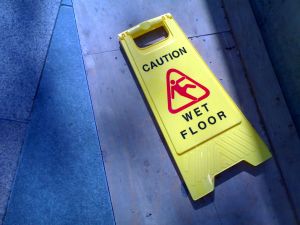Kentucky Landlords Can Be Liable To Their Tenants For Certain Types Of Injuries
Kentucky Landlord Tenants laws limit personal injury lawsuits against landlords. In Kentucky, a landlord is “not a guarantor of the tenants’ safety.” See Davis v. Coleman Management Co., Ky.App., 765 S.W.2d 37 (1989). However, a landlord owes a duty to his tenants to exercise reasonable diligence to keep common areas retained under the landlords control in a safe condition for the tenants. See Davis v. Coleman Management Co., Ky. App., 765 S.W.2d 37, 38 (1989).
against landlords. In Kentucky, a landlord is “not a guarantor of the tenants’ safety.” See Davis v. Coleman Management Co., Ky.App., 765 S.W.2d 37 (1989). However, a landlord owes a duty to his tenants to exercise reasonable diligence to keep common areas retained under the landlords control in a safe condition for the tenants. See Davis v. Coleman Management Co., Ky. App., 765 S.W.2d 37, 38 (1989).
“A possessor of land who leases a part thereof and retains in his control any other part which the lessee is entitled to use as appurtenant to the part leased to him, is subject to liability to his lessee and others lawfully upon the land with the consent of the lessee or a sublease for physical harm caused by a dangerous condition upon that part of the land retained in the lessor’s control, if the lessor by the exercise of reasonable care could have discovered the condition and the unreasonable risk involved therein and could have made the condition safe.” See Restatement (Second) of Torts, Section 360 (1965).
Only when the tenant is put in complete and unrestricted possession and control of the premises, will the landlord not be liable for known defects which existed at the time the tenant leased the premises. See May v. Moore, 2008 WL 2152274 (Ky. App.), citing Carver v. Howard, Ky., 280 S.W.2d 708, 711 (1955).
Continue reading →
 Kentucky Personal Injury Attorney Blog
Kentucky Personal Injury Attorney Blog


